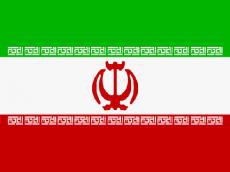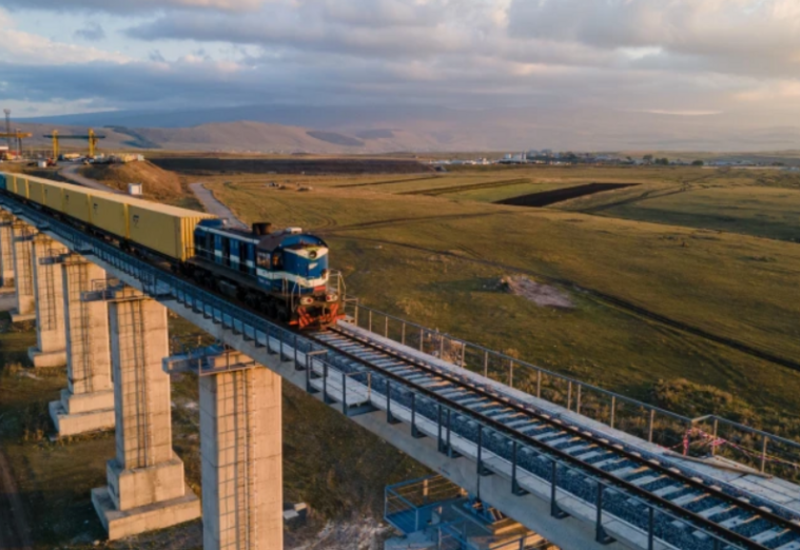|
|
TODAY.AZ / World news
Nuke deal done, Iran-EU political co-op next
30 July 2015 [10:59] - TODAY.AZ

By Umid Niayesh
Resolving the more than decade-old Iran-West nuclear dispute has opened new horizons to the future of the two sides’ political cooperation.
Of course economic cooperation will be resumed after the sanctions’ removal, but the two factions have other areas to work together, other disputes to resolve using the successful model of the nuclear deal.
Only days after July 14, the day that the historic deal was achieved between Iran and the six world powers, German vice-Chancellor, Sigmar Gabriel visited Tehran, bringing with him a large economic delegation. His visit was followed by the EU foreign policy chief, Federica Mogherini and French Foreign Minister Laurent Fabius visits to Iran and other high-ranking European officials have a visit to Tehran on their agenda.
Along with having an eye on boosting mutual economic ties in the post-sanctions era, the European guests also uttered their political interests, including the disputes.
Gabriel urged the Islamic Republic to improve relations with Israel if it wants to form closer economic ties with Germany. There were also speculations that he had plans to speak to Iran 's human rights representatives.
However it is not likely that the sensitive issues such as Iran’s position towards Israel and the Islamic Republic’s human right case will take a decisive role in the future of Iran-EU political relations. The sides already have more actual and important topics for cooperation such as fighting against terrorism and extremism.
Ahead of her visit to Tehran, Mogherini writing on the op-ed page of Britain's Guardian newspaper, said EU foreign ministers had tasked her with exploring “ways in which the EU could actively promote a more cooperative regional framework” in the wake of the Vienna deal. While the whole Middle East is in turmoil and sectarianism is on the rise, cooperation between Iran , its neighbors and the whole international community could open unprecedented possibilities of peace for the region, starting from Syria , Yemen and Iraq , she underlined.
This article should be considered as a guideline for the Iran-EU political cooperation in the new era. As Iranian FM Mohammad Javad Zarif said, a new chapter of Iran-EU has opened: high-level talks which would cover different fields of cooperation including regional issues, fighting against narcotics, as well as energy and trade.
This means that the issues which were pursued via the EU “critical dialogue” with Iran including human rights questions, Tehran ’s position on the Arab-Israeli peace process will be moved to the background.
Fabius wrote an article in the Islamic Republic’s governmental Iran newspaper before his visit to Tehran underlining that the Islamic Republic as an influential country can play a positive role in confronting with crises and disasters in the Middle East. “The agreement we have achieved has created specific responsibilities for Iran and for us.”
After arriving in Tehran, Fabius underlined that his visit would cover political issues. His visit has already made some kind of positive forecasts and raised some speculation on resolving some crisis in the region, such as tackling Lebanon ’s presidential vacuum amid the ongoing disputes between its rival political camps.
Arab media have quoted a French source saying that the minister is “cautiously optimistic” over tackling the issue with Iranian officials with hope that it will facilitate staging of the polls.
Iranian President Hassan Rouhani has referred to the nuclear deal as a model to resolving most complicated disputes. Both Rouhani’s administration and the EU have no choice but to bring forth the common interests, rather than disputes.
Radicalism is not only threatening the Middle East region but the radical Islamic groups’ nightmare returns to the EU capitals.
On the other hand, the fruitful ties with the EU in particular in the economic fields, will make Rouhani’s hand more powerful against his domestic conservative rivals.
The EU should take advantage of working with the pragmatist Rouhani to form other “win-win” deals regarding the regional disputes, considering the fact that with hardline Iranians the sword of Damocles is always there.
Weakening Rouhani and his moderate administration can pave the way for another Mahmoud Ahmadinejad-the former radical president- who might return to the pre-agreement period, eye-blinded to all risks.
URL: http://www.today.az/news/regions/142515.html
 Print version
Print version
Connect with us. Get latest news and updates.
See Also
- 05 February 2026 [12:23]
Trump alleges Iran nuclear revival while sources say military action on table - 05 February 2026 [11:37]
Xi Jinping highlights Taiwan as "most important issue" in US-China relations during call with Trump - 05 February 2026 [09:00]
Tajikistan begins transition to 12-year education - 05 February 2026 [08:00]
Fuel leaks persist on NASA’s Artemis rocket - 04 February 2026 [19:23]
Iran formally allows women to ride motorcycles - 04 February 2026 [18:55]
Nestle baby milk contains toxins - 04 February 2026 [18:22]
Kazakhstan and Pakistan plan to boost trade - 04 February 2026 [15:38]
Second round of Russia–Ukraine talks opens in UAE amid escalating tensions - 04 February 2026 [15:17]
EU prepares 20th Russia sanctions package, Kyrgyzstan faces measures for first time - 04 February 2026 [14:00]
Indian carrier cancels flights to Tbilisi, Almaty, Baku and Tashkent amid Iran tensions
Most Popular
 Zangezur corridor become part of TEN-T: European Union is joining fight for South Caucasus
Zangezur corridor become part of TEN-T: European Union is joining fight for South Caucasus
 US moving forces into Middle East - What comes next with Iran?
US moving forces into Middle East - What comes next with Iran?
 The army is being taken away from Etchmiadzin
The army is being taken away from Etchmiadzin
 Norwegian parliament to debate abolishing monarchy over 'Epstein' crisis
Norwegian parliament to debate abolishing monarchy over 'Epstein' crisis
 SOCAR, Huawei discuss digital transformation and advanced technologies in oil, gas sector
SOCAR, Huawei discuss digital transformation and advanced technologies in oil, gas sector
 bp commemorates Magsud Ibrahimbayov’s birth anniversary
bp commemorates Magsud Ibrahimbayov’s birth anniversary
 Rumors about the Catholicos’ arrest are circulating in Armenia once again, raising the question of their purpose
Rumors about the Catholicos’ arrest are circulating in Armenia once again, raising the question of their purpose
